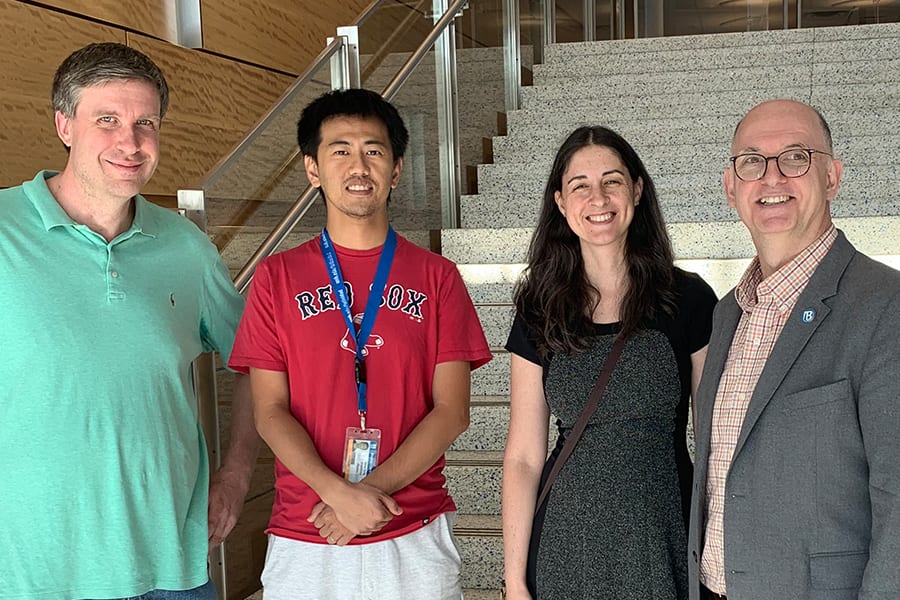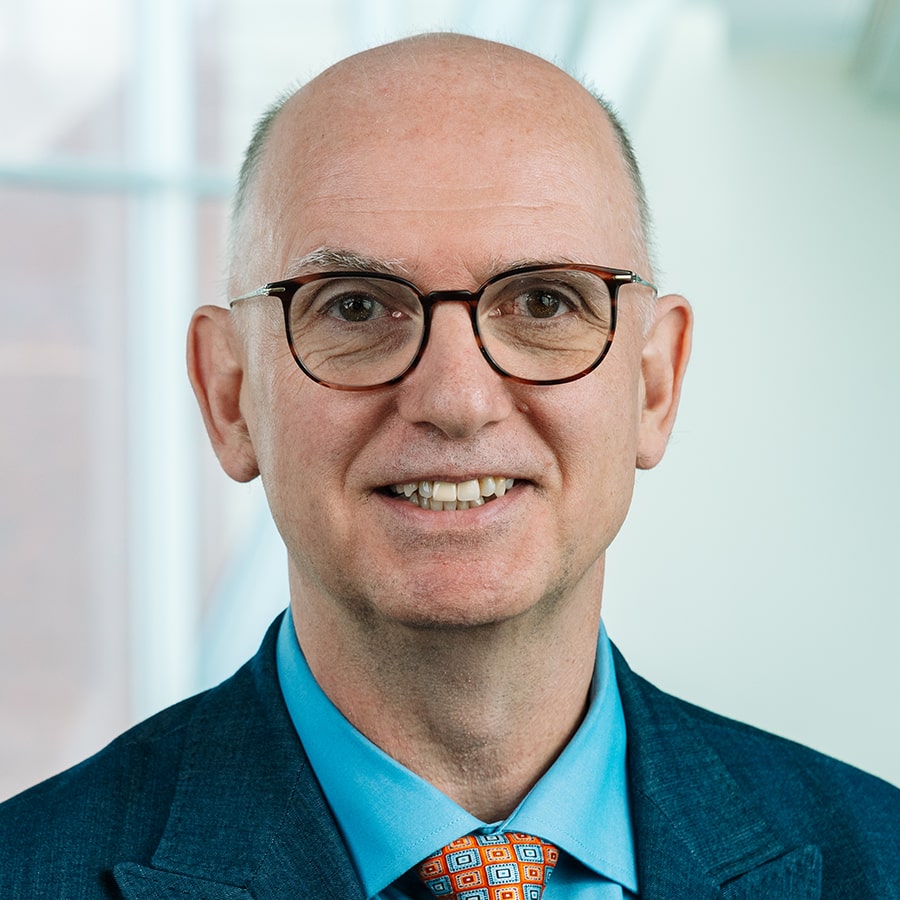- Home
- News
- Recent News
- UMass Boston's EQUIP-UMB Program
UMass Boston's EQUIP-UMB Program: A Strategic Development in Quantum Information Science and Engineering
Quantum Information Science and Engineering (QISE) is an emerging and fast-evolving field identified as a priority in the 2022 CHIPS and Science Act, and UMass Boston is gearing up to play a growing role to accelerate research and innovation and develop the workforce.

New devices and technological applications promise to form the basis of one of the major technological revolutions of the 21st century, with the potential to impact a range of disciplines such as biology, chemistry, computer science, device engineering, materials science, mathematics, physics, and several others.
UMass Boston was awarded a $5 million grant, Expand QUantum Information Programs at UMass Boston (EQUIP-UMB), from the National Science Foundation (NSF) through its ExpandQISE program, which aims to develop a diverse and multidisciplinary talent pool primed for active participation in the U.S. QISE workforce. The vision of EQUIP-UMB is to establish a vibrant and sustainable QISE program at UMass Boston. The 5-year EQUIP-UMB award will enable the UMass Boston group to tackle three main objectives. The first is to conduct high-quality research within three focus areas: quantum fundamentals, quantum metrology and control, and codesign and quantum systems. Secondly, the program seeks to expand the university's QISE program by creating three new tenure-track positions. The third objective is workforce development through student engagement and partnership with industry.
As part of the UMass Boston team, led by Robin Côté (Director of the Data & Quantum Science (DataQS) Center, and Past Dean, College of Science and Mathematics) as principal investigator, and comprised of Associate Professor Matthew Bell (Engineering), Assistant Professor Olga Goulko (Physics), Assistant Professor Akira Sone (Physics), and Professor Christopher Fuchs (Physics), we are working together on topics ranging from foundation of quantum mechanics, to many-body dynamics, to quantum thermodynamics, to hybrid quantum platforms, and superconducting systems. In addition to providing funding for advanced research equipment, UMass Boston’s $4.5 million share will cover two years of salary for the three new faculty positions (two experimentalists and one theorist) and provide two-year support for four postdocs and five graduate students, seeding a robust start for the EQUIP-UMB program. The remaining $0.5 million is shared between our collaborators’ groups at MIT (Professor Paola Cappellaro) and Harvard (Professor Mikhail Lukin).
To develop a diverse and multidisciplinary QISE workforce, EQUIP-UMB builds on various education initiatives designed to lower the barriers to entry into the quantum workforce, such as the undergraduate Quantum Information Certificate (QIC) introduced in the 2021–2022 academic year to provide foundational knowledge in QISE with minimal scientific background required. Plans for a graduate-level certificate (QuIC) are underway, which will offer advanced study including the experimental realization of quantum devices. UMass Boston also plans to integrate QISE tracks into its computational sciences and applied physics PhD programs to enhance interdisciplinary collaboration. In addition, our industry partners such as Atlantic Quantum, Millimeter Wave Systems, QuEra, Quantum Microwave, and Riverlane will contribute to these efforts by providing guidance on industry needs and with internships for our students.
EQUIP-UMB at UMass Boston represents a concerted effort to advance QISE through focused research, educational programs, and collaborative partnerships. This investment in QISE will be leveraged to seek additional resources from federal and state agencies, in particular the Massachusetts Technology Collaborative (MassTech), to increase the capabilities of our Quantum Hardware Development & Commercialization Core Facility and DataQS Center. This initiative is expected to contribute significantly to the development of a skilled workforce in the emerging field of quantum information science and set UMass Boston to become a Beacon of quantum education and innovation for Massachusetts.

Distinguished Professor of Physics, Director of the Data & Quantum Science (DataQS) Center, College of Science and Mathematics